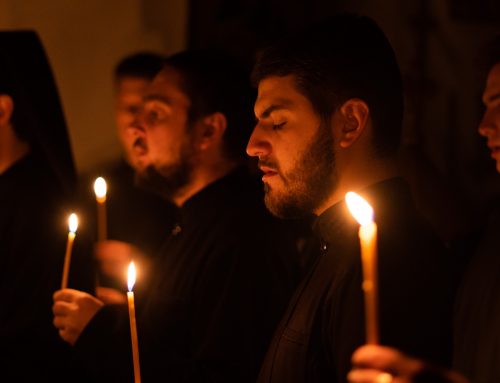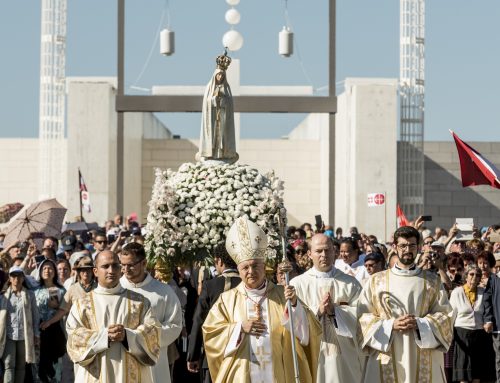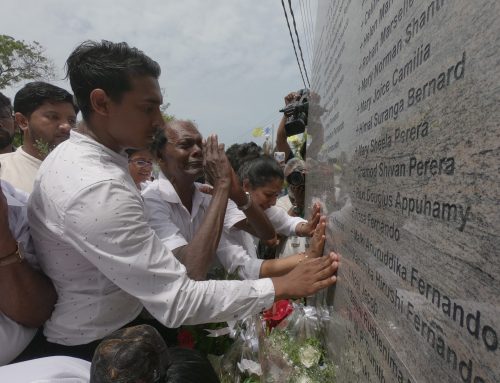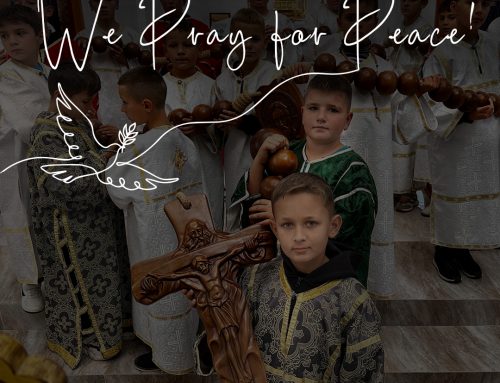Erbil, Iraq 20.04.2015
The Christian refugees – Andrzej Halemba, ACN’s representative for the Middle East, sees signs of progress in northern Iraq
By Oliver Maksan
“Many people are starting to hope again”– such is the situation of the Christian refugees in northern Iraq, according to Father Andrzej Halemba, who heads the Middle East section of the international Catholic pastoral charity Aid to the Church in Need (ACN). Last summer more than 120,000 people were forced to flee the terrorist militia of the so-called “Islamic State” (IS) and seek refuge in the autonomous Kurdish controlled regions of Northern Iraq. Having just recently returned from a visit to the region, Father Halemba reports: “The people no longer have the feeling of being on the very point of drowning. They now have a life jacket, so to speak. And even if the shore is still a long way off, they at least know that they are safe for now. The measures we have been able to take on the spot, in cooperation with the local Church, have stabilised the situation.”
Just a few months ago, Father Halemba recalls, a sense of anger and despair were the predominant feeling among the refugees. “People could only think of visas, ready money and how they could manage to get out from Iraq as quickly as possible. Now things have settled and many people have come to terms with the situation and want to stay on in the country. Above all, the most recent military successes of the Iraqi army, in Tikrit, for example, are seen as signs of hope that it might yet be possible before long to return to their home towns and villages that were occupied by ISIS.”
Another factor that has in particular had a stabilising effect has been the rehousing of many of the refugees from their tents and containers into rented accommodation. “This has given the people a new feeling of dignity and security once again. It has also reawakened a sense of personal initiative among many of them, something that was lacking before.” Not a few of them have now found work in the Kurdish regions. “It is true that their situation is often exploited by their employers, who know the plight the Christians find themselves in. Nonetheless, the fathers can at least contribute once again to the support of their families by working on building sites and the like.” Another factor that has helped to contribute to the improvement in the situation has been the schools for the refugee children, funded partly with the help of ACN. “For the parents it is of decisive importance to know that their children can continue their education. This too gives a feeling of normality.”
All in all, six of the planned eight schools should be up and running by May. Two are already in operation, in Erbil and Anakawa. Each school can accommodate around 900 pupils.
The crucial factor during this phase, according to Father Halemba, is that the Church is sustaining the people in their hope. “The readiness to listen and the sympathy are psychologically decisive. The people have to have the feeling that they are not forgotten.” Hence he wants to focus particularly on a continuing improvement in their living situation. “The time of the containers is essentially over now. We are therefore planning to try and house still more people in rented accommodation. But at the same time we want to encourage them in taking their own initiative. We are considering a monthly stepwise reduction in the support for their rent. This will put a gentle pressure on them to try and find their own sources of income.” Meanwhile, Father Halemba insists, the international help of the kind provided by ACN is important not only in a material sense. Gestures such as the Christmas gift campaign for 15,000 refugee children have also been an expression of support and sympathy from the universal Church. Altogether, some 15,000 families are being supported in one way or another by ACN, he explains, and the charity has already given over 4.8 million Euros since the beginning of the crisis.
New aid measures are now being planned, he adds. For example, ACN is hoping to support the programme to enable some of the religious sisters expelled by ISIS to be given a period of spiritual and psychological recovery in somewhere like Lebanon, for instance. For they too are often psychologically burdened and deeply affected by the events. “They urgently need our help, so that they can recover and then help themselves again. They are simply running on empty”, Father Halemba explains. This is hardly surprising, he adds, considering that they have lost everything they have built up over many years of their religious apostolate, in the way of schools, children’s homes and elderly retirement homes. And the priests and religious who work on the spot have a crucial role to play in giving hope to the people. “They are the driving force within the community, and close to the people. We need them urgently.”
Time is a crucial factor in Iraq, Father Halemba believes, in view of the continuing refugee situation – to which there is no end in sight – and the continuing emigration. “We do not know how long this situation will continue. But we must continue on our path of helping people to help themselves. We are standing by them. But ultimately it is they who must find new hope within themselves.”
Father Halemba also emphasises the positive effects of ACN’s efforts to draw people’s attention to the situation of the Christians in the Middle East, through information and publicity work. “Our events in Brussels and Geneva have undoubtedly helped to persuade politicians of the seriousness of the situation. Only a little while ago there was little interest. This has now changed, and many politicians can see the necessity of helping the Christians to stay on in their own countries”, he explains. Ultimately, however, this will only be possible if the Muslims of the region can find a way to live together without violence, he insists. “The Western nations must help to promote concepts of nonviolence throughout the Middle East. Above all the imams and the other Islamic leaders must be won over to this idea.”
Oliver Maksan, press@acn-intl.org





